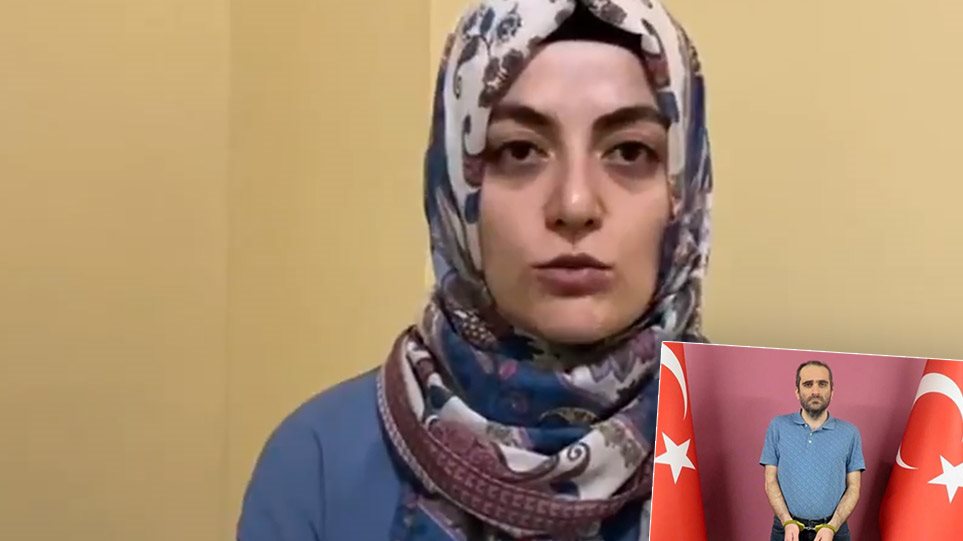Gulen’s wife states in video that she last saw her husband on May 3 – His lawyer says he disappeared while on his way to the Kenya Criminal Investigation Department, which had imposed restrictive conditions on him
In Kenya it seems to have been the kidnapping operation of Selachantin Gulen by the Turkish intelligence services, as reported by i New York Times.
The abduction and arrest attributed under the clearance carried out by the regime Erdogan to those involved in the organization FETO of Fethullah Gülen, a priest who is in the United States and accused of the failed 2016 coup against Erdogan president.
The Selachantin Gulen is said to be the nephew of Fethullah Gülen and according to his wife, had disappeared on 3 May 2021. In a video released on the internet, the Serigie Gulen states that she lived with her husband in Kenyasince last November. She last saw him on May 3. She considers that he was abducted and transferred to Turkey on May 5.
“He was abducted on May 3,” said his wife
” My husband is a teacher who has lived a modest life abroad for years. We got married recently and my husband was abducted on May 3 by an unknown group and taken to an unknown location. I have not heard of him since that day. I have contacted all the authorities to find him. His disappearance has occupied a great deal of media in Kenya. “I believe he was abducted and arrested and taken to Turkey on May 5, ” he said in the video.
According to him, his persecution is purely due to his kinship with Gulen. “I call on the authorities to find my husband and release him,” he said.
Gulen’s nephew fought a legal battle to avoid his extradition
In the past, Selahaddin Gulen lived in Kenya and fought a legal battle to avoid deportation.
A Turkish citizen and permanent resident of the United States arrived in Kenya on a tourist visa on October 17, according to a court document cited by the New York Times. After being allowed to enter the country, immigration officials arrested him on the basis of an Interpol warning of an “alleged child abuse case,” the statement said. Gulen, in an affidavit, said he had been acquitted of the charges in 2008.
Gulen told a Kenyan court thatTurkish authorities wanted to prosecute him,as they did ” my sister, my brother and 62 other members of the extended family “ . According to him, Interpol ‘s moves are due to the new “tool” used by the Turkish authorities in order to arrest and return to Turkey all persons related to Fethullah Gulen outside Turkey. The Interpol has been criticized for misuse of the warning system.
Two days after the arrival of Gulen in Kenya on October 19, was taken to court in tirio and allowed bail, pending its issuance process. In early May, a few days before the formal hearing of the case, he disappeared while going to the Directorate of Criminal Investigations, according to his lawyer. “His presence every Monday was part of the restrictive measures ,” his lawyer said.
The court had instructed the Kenyan authorities to explain Gulen’s whereabouts. Kenya’s role in the case remains unknown. The Interior Ministry has not answered any questions.
Arrest announced by Erdogan
According to the Turkish news agency Anadolu, Gulen was arrested and returned to Turkey by the Turkish intelligence service, MIT. Gulen is accused of involvement in the FETO organization.
Although the news agency did not provide further details, the Turkish president had said on May 19 that Turkey had arrested a high-ranking official of the Gulen movement.
“We will soon announce an important name from the FETO organization,” the Turkish president said, explaining that “it is in our hands.”
Hundreds of thousands persecuted after failed coup in 2016
The Turkish president, after the failed coup, had declared a state of emergency for two years, detaining 100,000 people and firing 150,000 civil servants . More than 8,000 soldiers were persecuted.
In abroad, Turkey proceeded to forced deliveries of 80 or more supporters of Gulen and the closure of dozens of schools that are under his leadership. Although Ankara has demanded the extradition of Fethullah Gulen from the United States, Washingtontook very small steps in satisfying his request. U.S. officials say the evidence presented by Ankara is insufficient for the court. The issue is one of the “thorns” in Turkey-US relations.
Turkish officials have put pressure on countries such as Kenya, to close private schools belonging to the network of Gulen, located in major cities such as Nairobi and Mombasa. The Kenyan government has not done so. However, the pressure he received is indicative of Erdogan’s influence and his intentions to neutralize the Gulen movement.



